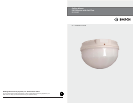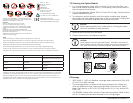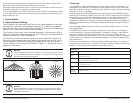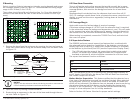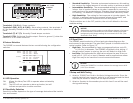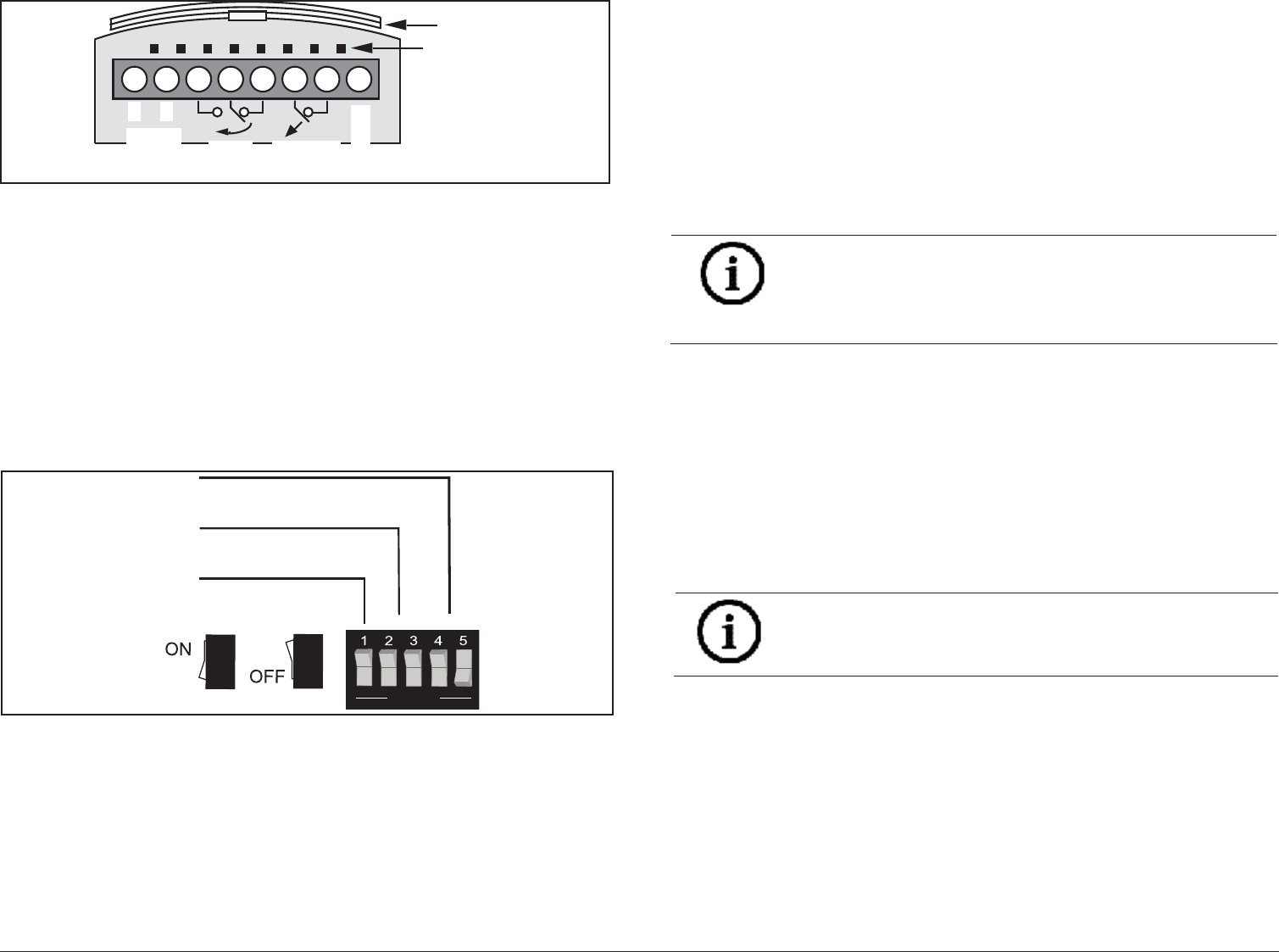
6 © 2012 Bosch Security Systems, Inc.
4.1 LED Operation
ON: Allows the Alarm/Test LED to operate when activated by
motion.
OFF: The LED will not operate on alarm activation, but will
indicate a supervision trouble condition.
4.2 Sensitivity Selection
Sensitivity modes depend on the type of coverage desired and the installa-
tion environment.
Figure 4.1: Selecting features
Figure 3.1: Wiring to terminals
Terminals 1 (-) & 2 (+): Power contacts.
Terminals 3 (NO), 4 (C), & 5 (NC): Alarm relay contacts. Use terminals 4
& 5 for Normally Closed circuits. Do not use with capacitive or inductive
loads.
Terminals 6 (T) & 7 (T): Normally Closed tamper contacts.
Terminal 8 (TR): Solid state Trouble output. Shorts to ground (-) when the
detector is in a Trouble condition.
4 Feature Selection
The DS938Z has several features that are controlled using the confi guration
switches.
}
}
1 ON = ON
1 OFF = OFF
LED
Sensitivity
Motion
Monitor
OPEN
4 ON and 5 OFF = 4 Day
4 OFF and 5 ON = 30 Day
4 OFF and 5 OFF = Disabled
2 ON and 3 OFF = High
2 OFF and 3 ON = Intermediate
2 ON and 3 ON = Standard
– +
RELAY
12345678
6to15
VDC
Alarm
TROUBLE
INTERFACE
PINS
KEY GUI
DE
TAMPER
F.01U.263.663 | 01 | 05.2012 | 7
• Standard Sensitivity: Tolerates environment extremes on this setting,
but requires the largest amount of intruder motion to achieve an alarm.
• Intermediate Sensitivity: The recommended setting for most instal-
lations. Use in locations where an intruder is expected to cover only a
small portion of the protected area. Tolerates normal environments on
this setting. The detector is shipped in Intermediate Sensitivity mode.
• High Sensitivity: The setting for fast response to intruder signals. For
use only in extremely quiet environments where ceiling drafts, and
thermal and illumination transients are not anticipated.
If both switches are in the OFF position, the unit will default to the inter-
mediate setting.
NOTICE!
Although the sensitivity modes provide different degrees of tolerance
to environmentally caused alarms, the installer should assure peak
background noise voltage readings do not exceed ±0.15 VDC. (See
Section 8.0 Final Tests).
4.3 Signal Gain
The DS938Z permits selection of the signal gain depending upon the
environment to be protected. The gain select jumper is located under the
optical module. Refer to Figure 2.3.
• High Gain: Recommended for large coverage applications up to 60
ft. (18.3 m) in diameter. The DS938Z is shipped in this setting. If
the gain select jumper is missing, the unit will default to High Gain.
• Low Gain: Recommended for applications where the area to be cov-
ered is 40 ft. (12.2 m) or less in diameter and for applications where
High Gain may be too sensitive for environmental extremes.
NOTICE!
Setting the DS938Z for Low Gain reduces the coverage area to 40 ft.
(12.2 m) in diameter.
5 Setup and Walk Testing
1. Attach a TC6000 Test Cord to the Noise Voltage terminals. Since the
outside terminals are common, polarity is not important and the black
lead may be toward or away from the optical module.
2. Attach a Sonalert to the sounder pins at this time if one will be used
during walk testing.



